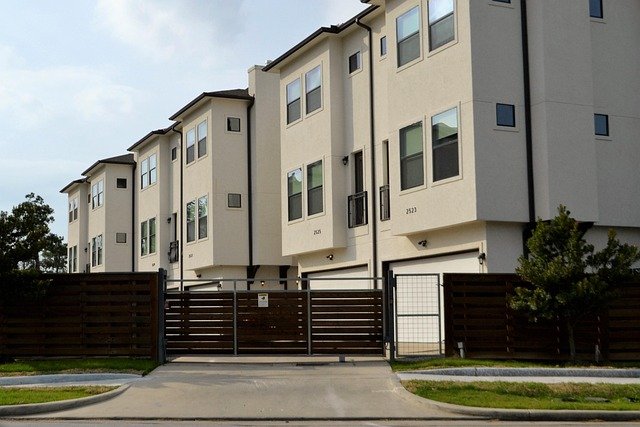Hope and Stability: Housing Assistance for Single Mothers
Navigating the challenges of single parenthood often includes finding safe, affordable housing while managing limited financial resources. For many single mothers, securing stable housing can feel overwhelming amid competing priorities like childcare, education, and employment. Fortunately, various housing assistance programs specifically designed for single mothers can provide crucial support during difficult times. These programs offer pathways to affordable rental opportunities, homeownership possibilities, and emergency housing solutions that can transform unstable living situations into foundations for family success.

Understanding Housing Assistance Programs for Single Mothers
Housing assistance programs for single mothers typically fall under several categories, each designed to address specific housing needs. The U.S. Department of Housing and Urban Development (HUD) administers many federal programs, while state and local agencies often provide additional resources. These include Housing Choice Vouchers (Section 8), public housing, emergency housing assistance, and specialized programs for first-time homebuyers. Eligibility generally depends on income level, family size, and sometimes other factors like employment status or educational enrollment.
The application process varies by program but typically requires documentation of income, family composition, citizenship status, and rental history. While waiting lists for some programs can be lengthy, many agencies prioritize families with children, potentially expediting assistance for single-mother households. Understanding the full landscape of available programs can significantly improve chances of securing appropriate housing support.
Government Housing Assistance Options
The Housing Choice Voucher Program (Section 8) represents one of the most substantial housing assistance initiatives for single mothers. This program allows participants to find their own housing in the private market, with the government subsidizing a portion of the rent. Voucher holders typically pay 30% of their adjusted monthly income toward rent, with the program covering the remainder up to a predetermined payment standard.
Public housing provides another government-supported option, offering reduced-rent apartments owned and managed by local housing authorities. These developments vary widely in quality and availability across different regions. Additionally, the Low-Income Home Energy Assistance Program (LIHEAP) helps qualifying households manage utility costs, freeing up more resources for rent or mortgage payments.
For single mothers with homeownership goals, HUD’s Family Self-Sufficiency Program combines housing assistance with financial counseling and educational support. This comprehensive approach helps families achieve long-term housing stability while building valuable equity.
Non-Profit and Local Housing Resources
Beyond government programs, numerous non-profit organizations offer housing assistance specifically tailored for single mothers. Organizations like Habitat for Humanity provide affordable homeownership opportunities through sweat equity programs, while Catholic Charities, The Salvation Army, and various women’s shelters offer emergency housing solutions and transitional living programs.
Many communities also have housing trust funds that develop affordable rental units with preference given to vulnerable populations, including single-parent households. Additionally, Community Development Financial Institutions (CDFIs) often provide specialized mortgage products with favorable terms for low-income families seeking homeownership.
Local resources can be found through community action agencies, which typically serve as clearinghouses for various assistance programs. These organizations can connect single mothers with rent assistance, security deposit grants, utility payment help, and other services that complement federal housing programs.
Specialized Housing Assistance for Education and Employment
Several innovative programs recognize the interconnection between housing stability and other life goals for single mothers. Programs like HUD’s Family Unification Program (FUP) provide housing vouchers for families where inadequate housing threatens family unity or prevents children from living with their parents.
Organizations like Bridges to Housing Stability and Solutions for Change offer integrated approaches that combine affordable housing with educational opportunities and job training. These programs understand that sustainable housing requires parallel supports in employment and skill development.
Many college campuses also provide family housing options for student parents at reduced rates. Additionally, organizations like the Jeremiah Program specifically work with single mothers pursuing higher education, offering affordable housing alongside childcare, life skills training, and career support.
Overcoming Barriers to Housing Assistance
Despite the availability of programs, single mothers often encounter significant barriers when seeking housing assistance. Long waiting lists for vouchers can extend for years in high-demand areas, while application processes sometimes require extensive documentation that can be challenging to compile. Additionally, fair housing violations persist despite legal protections, sometimes making it difficult for single mothers to access quality housing even with assistance.
Advocacy organizations like the National Low Income Housing Coalition work to address these systemic barriers through policy initiatives and increased funding for affordable housing programs. Meanwhile, housing counseling agencies approved by HUD provide free guidance to navigate application processes and understand housing rights.
Building strong relationships with case managers can significantly improve outcomes, as these professionals often have information about openings in programs or alternative resources. Additionally, maintaining organized documentation of income, expenses, and family circumstances streamlines applications and increases the likelihood of timely assistance.
Emergency Housing Solutions for Crisis Situations
For single mothers facing immediate housing crises like eviction or domestic violence, emergency housing assistance provides critical intervention. Domestic violence shelters offer safe, temporary accommodation along with comprehensive support services. Emergency rental assistance programs, often administered through local community action agencies or housing authorities, can prevent eviction by covering past-due rent.
The Emergency Solutions Grant program funds rapid rehousing initiatives that quickly move families from homelessness into permanent housing, covering security deposits, temporary rental assistance, and case management. For more extended needs, transitional housing programs provide stable accommodations for up to 24 months while families work toward self-sufficiency.
When seeking emergency assistance, it’s important to connect with local crisis hotlines or the National Domestic Violence Hotline (1-800-799-7233), which can provide immediate referrals to appropriate resources. Many communities also operate centralized intake systems for homeless services, streamlining access to available emergency resources.
Conclusion
Housing assistance programs offer vital support for single mothers working toward stability and prosperity for their families. By understanding available options—from federal programs like Section 8 to local non-profit initiatives—single mothers can access resources that transform housing insecurity into permanent foundations for growth. Though navigating these systems can feel daunting, the combination of government programs, non-profit support, and specialized initiatives provides multiple pathways to secure, affordable housing that supports family wellbeing and future opportunities.




